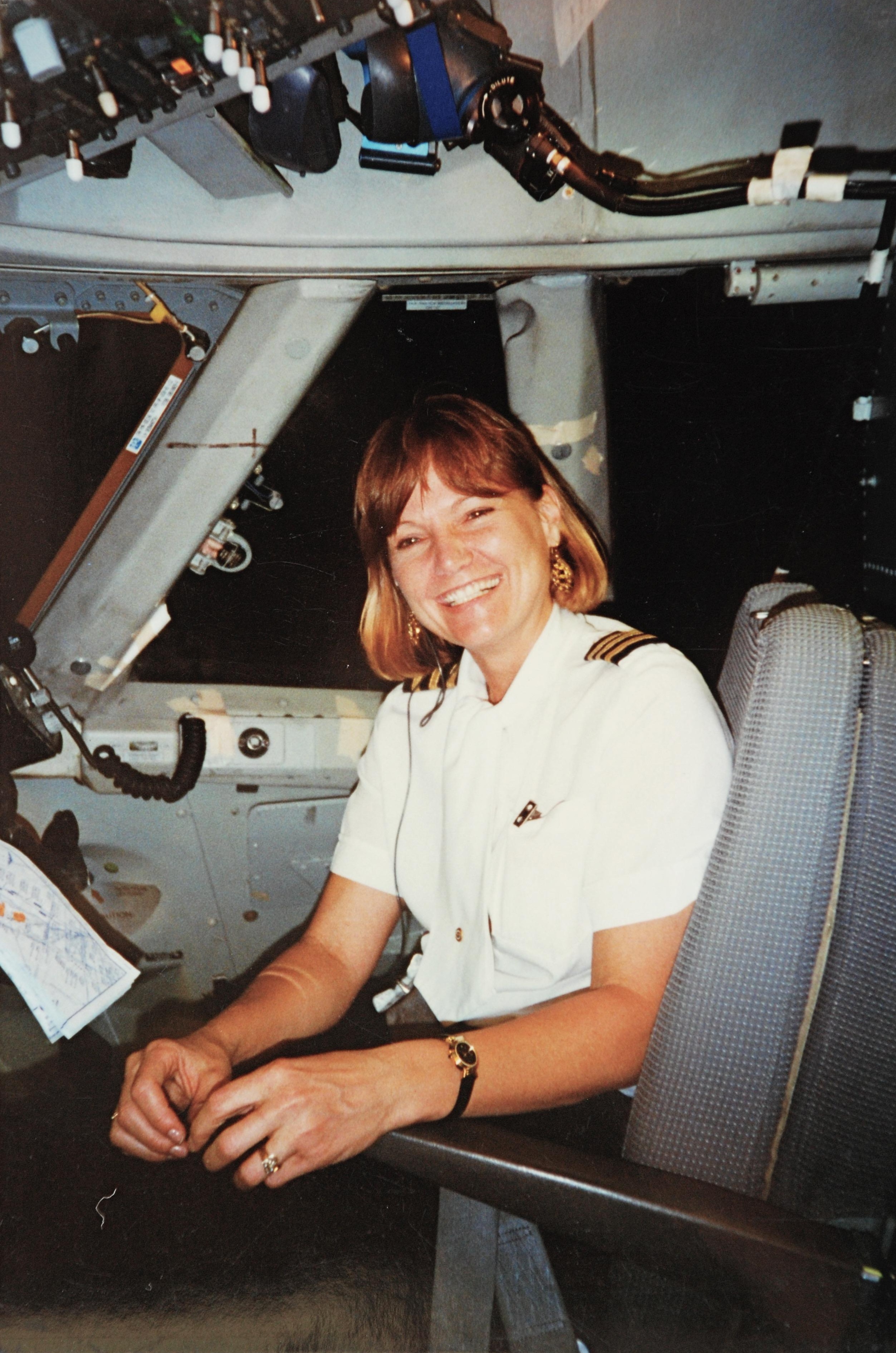After the success of part one, I am thrilled to present the second part of Kathy McCullough’s stories about flying the 747 with Northwest Orient Airlines to Asia!
_______________________________________________________________________________
Cambodian refugees
When I started flying the 747 in 1988, churches were sponsoring large groups of refugees leaving Cambodia to live in the United States. The gate agents in Narita, Japan were always running around in a panic cleaning up after the Cambodian children who wore no underwear and would squat anywhere to go to the bathroom. We would put all Cambodian families in the very back of our planes, and the flight attendants had to educate them on hygiene and bathrooms. The junior flight attendants would take their breaks in the cockpit and tell us all about it:
“The senior flight attendants stay close to their pot of Bailey’s Irish Cream and coffee in first class. They never help us in the back. The refugees bring their own food, and we are told never to feed them: they get horrible diarrhea from western food. We have to stop them from lighting fires in the aisle to cook! They don’t understand how dangerous that can be on an airplane. They think the closets where we keep our suitcases are bathrooms! We guard the closets and the overheads, and we carry stacks of diapers. The babies go from teat to teat, not caring who feeds them. As soon as a mother holds a baby over the aisle to poop or pee, we try to slap a diaper on their little butts, but the concept is foreign to them. It’s a nightmare.”
Avoiding quarantine
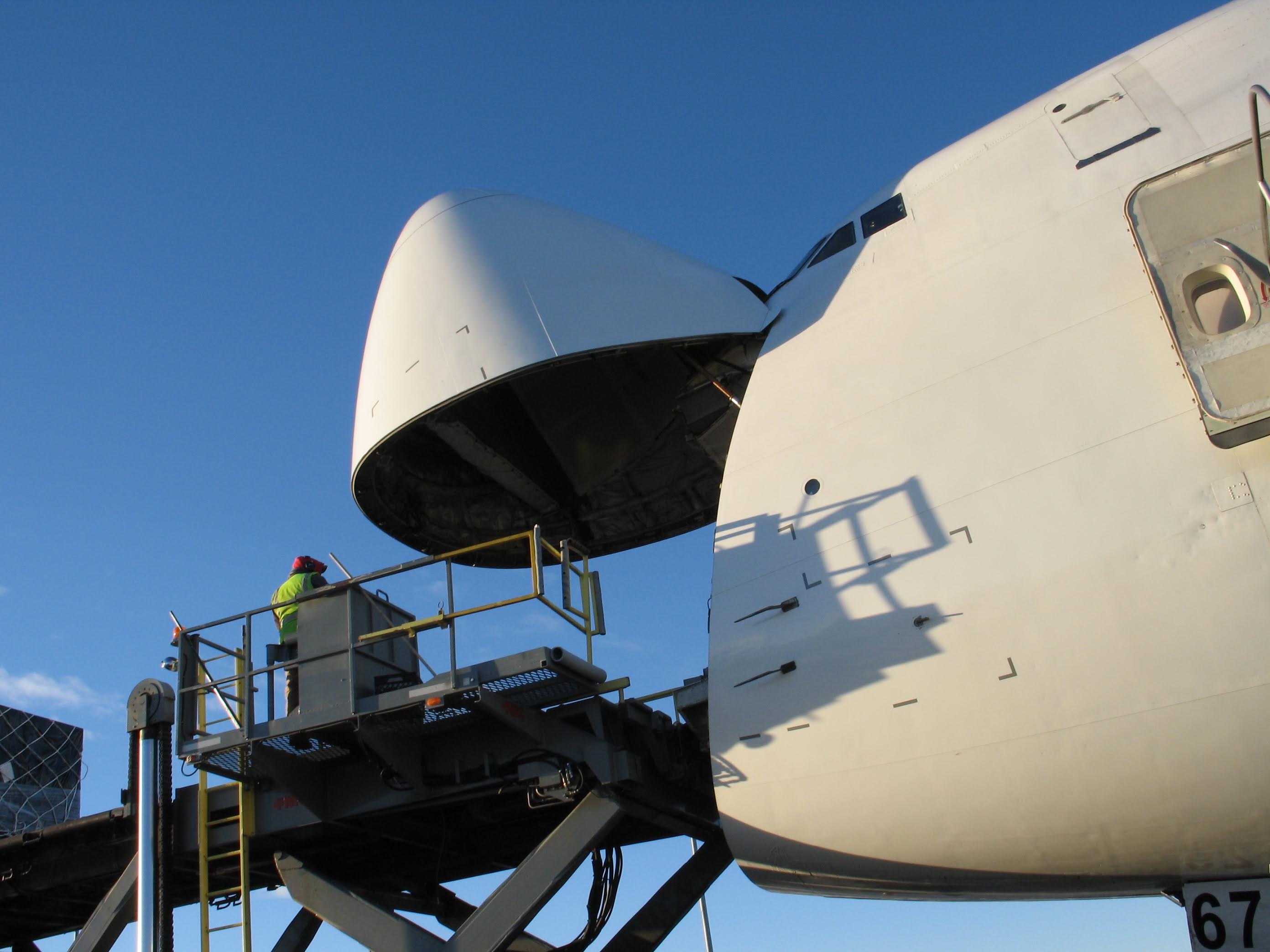
One of my freighter flights was full of animals we were taking to a zoo in Bangkok. I took extra walks on our way to Japan, just so I could look at all the animals. The giraffes were beautiful, especially the baby. On one of my walks, the baby was no longer moving. I told the handler, who was sitting in the upper deck with us. He nodded, and said it was dead. He said giraffes were like sheep: they had no will to live and wouldn’t fight through stress. These animals were extremely stressed, having started their trip thirty-two hours before. The handler asked us not to say anything, because the Japanese would quarantine the plane and more of the animals might die. We had witnessed the bureaucracy of Japan and knew it could be days before the animals were released from quarantine. So we didn’t say a word.
Dealing with death in the air
The next time Anne came up we asked her how he was. “He’s still asleep, but he looks terrible. He’s waxy and pale. I put a piece of paper under his nose and it moved, so I know he’s alive.” Of course, one by one, we all had to go down and look. Sure enough, he looked dead, but he would snort or snore so we could tell he was just sleeping. A few hours later Anne rushed in again. “He’s dead! He’s dead!”
“Are you sure? He looked dead before…”
“I’m sure. He told me he had been up all night partying and was just tired, but I think he was high…”
We called for a doctor, who pronounced him dead. There were no passengers near him, so we put a blanket over him. I called Narita to tell them what was going on. “Could you call the time of death outside Japanese airspace please?” Narita operations asked. “Less paperwork.”
That cracked us all up. They needed his name, age, etc., so we opened his briefcase to check. It was empty except for his passport and a diamond necklace. “He told me he was a businessman…” Anne said. The captain thought he was a mule, smuggling drugs. We agreed. But all we ever had were our suspicions, because we never learned who he was or what he was doing. I’ll never forget his name, either. It was Kevin, like my husband.
When I retold this story to a girlfriend of mine, she said, “That’s nothing. I had a Filipino family on my flight the other day. They were the last ones to get off the plane, and they hadn’t even budged because they were going to Manila and it was the same flight number. I told them it was the same flight number, but they had to clear customs in Japan first. The younger woman said she would clear customs for all of them, since her grandfather was asleep. I told her she couldn’t do that. They had to get off the plane to clear customs and it might not even be the same airplane. The girl talked to her parents and then asked for a wheelchair. I asked if they needed a doctor, since the old man under the blanket hadn’t moved.
‘No, no, he’s fine,’ the girl said.
So I got them an aisle chair, and as they were lifting him into it, the blanket fell off him and his arm dropped down. They quickly put it back, but the arm wouldn’t stay up! He had rigor mortis! He had died halfway across the Pacific and they just threw a blanket over him! They had heard how expensive and difficult it was to fly a casket through Japan, so they didn’t say anything… Often older Filipinos want to be buried on their home soil, but sometimes they wait too long.”
I nodded. How well I knew. I can’t tell you how many times we landed in Anchorage with medical problems…
Cultural differences
Much of Asia seemed like the Middle East in that women were second class citizens. I felt sorry for the receptionists at our hotels in Korea. There was one man behind every two women to correct and advise them. He was often rude and condescending, and they were doing a great job. I couldn’t imagine working in that environment and never being good enough.
When I was in Asia flying captain, the mechanics would never address me. Even though they could see that I was in the captain’s seat, they would only ask the copilot questions regarding the aircraft. And yes, when I was copilot and engineer, they wouldn’t address me, either!
Losing face is such a crazy notion that we Americans have trouble grasping it. We have been taught to assert ourselves, and speak up.
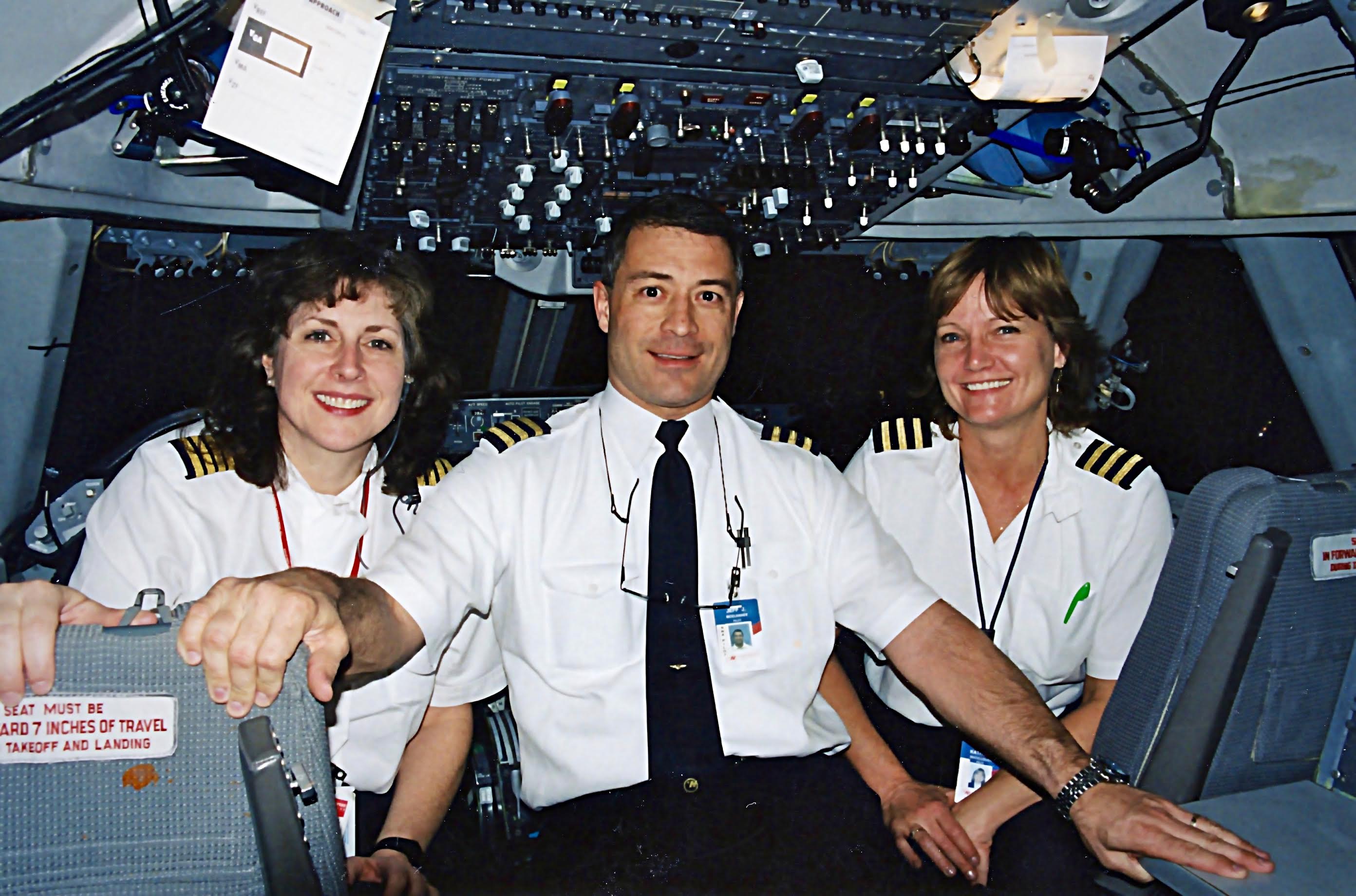
But the Japanese and other Asian countries are taught respect for authority and hierarchy (not all bad!). Numerous crashes were analyzed and the result was always the same: the copilot and engineer never challenged the captain. Our own CRM (Cockpit Resource Management) program was initiated when, shock of shocks, it turned out we were the same way. The captain is God, and not to be questioned. In fact, many captains used this technique to run their cockpit, and you never challenged their authority unless you wanted to be called to the Chief Pilot’s office and fired.
Smelly cargo
Whenever we flew pigs to Japan, all we had to do was submit the entire contents of our suitcases to laundry with the word ”pigs” and they were washed without question or charge. As flight engineer, it was my job to do the outside walk around and check the cargo compartment to see that all the pallets were locked down securely. One night, flying to Anchorage, twelve pigs were way in the back, two hundred feet behind the cockpit, stacked four levels high. They smelled to high heaven. It was a three-hour flight from Seattle to Anchorage, with a long layover. My husband and daughter were waiting for me at the hotel. When I walked into the room and kissed my dear husband good morning, his reaction was to hold his nose and say, “Oh, you smell like a pig! Go take a shower!” I had no idea pigs could be that permeating. Finally the company started giving us trash bags to put our suitcases in whenever we had pigs on board.
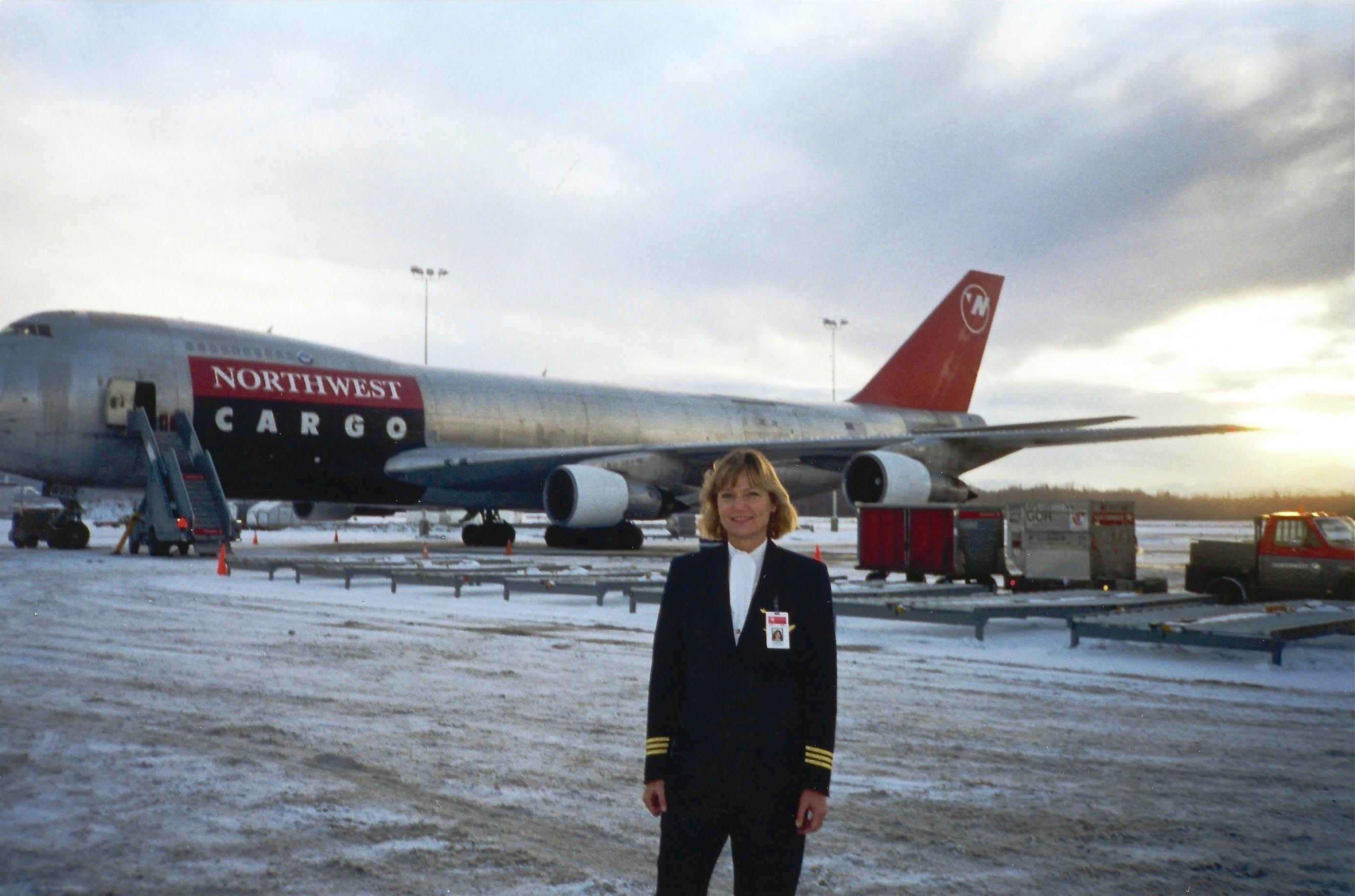
Turbulence on the way to Singapore
One of my most difficult flights as copilot was from Narita, Japan to Singapore. The route from dispatch said there was moderate turbulence.
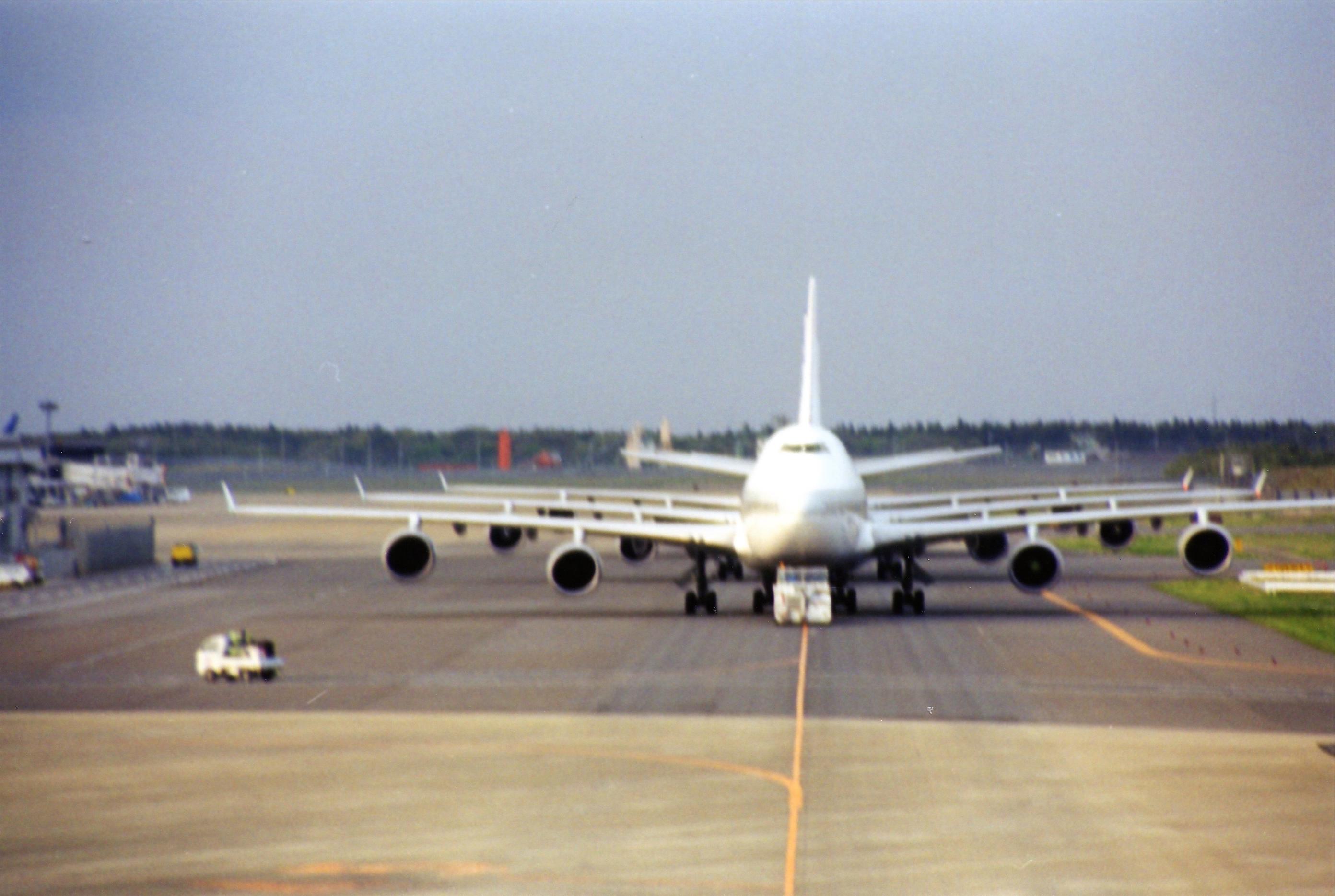
Once we were at our cruising altitude, the turbulence started. We were locked into our altitude and couldn’t climb or descend, unless we chose to descend to 17,000 feet and burn too much fuel. We told the flight attendants to stay seated and advised everyone to tighten their seat belts. For an hour and a half, we had severe turbulence, and all the coffee spilled out of our cups. We had the autopilot and auto throttles off and the captain hand flew it while I handled the throttles manually. It was the only way we could keep the 747 from “chasing” the speed and altitude, since the auto equipment couldn’t handle the huge changes.
When it relented somewhat, I hurried to the bathroom. The Asian flight attendants had their rosaries out! That didn’t help the already fearful passengers, I’m sure!
The same captain and I had another experience that same week. We were in the clouds, obviously IFR, when we got a warning on our collision avoidance radar (TCAS), but there was no altitude readout. It was coming straight for us! We asked the Japanese controller what he showed on his scope. Nothing. He said there was nothing in our airspace. Our TCAS was going crazy, telling us to climb or descend. We didn’t know what to do…either could have been disastrous. So we waited, our hearts pounding in our chests. The blip went right through us. The Captain turned to me and said, “I’m never flying with you again. I’ve never had a TCAS warning like that, or severe turbulence.” I said, “Ditto.” We both laughed, but it took our hearts twenty minutes to slow down. To this day we have no idea what the blip was. UFO? Weather balloon? Military secret?
(…)
End of Part II (you can find part I here)
